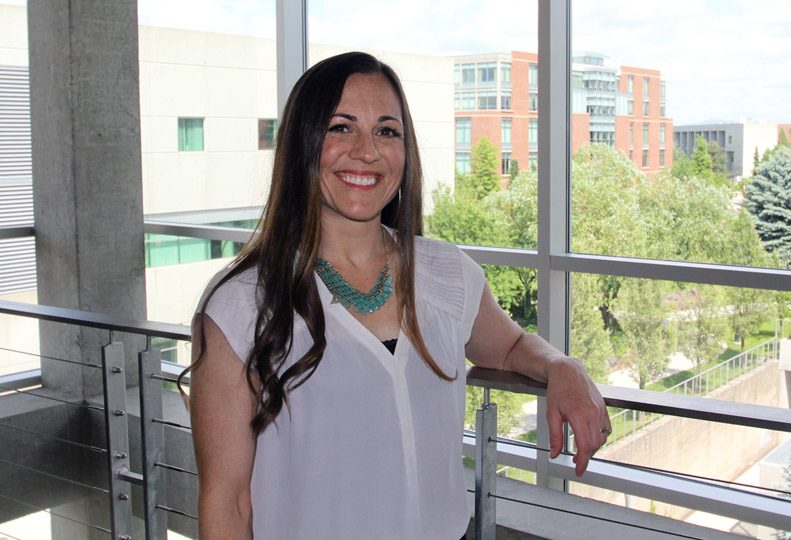WSU studies Medicaid access at rural pharmacies
Some regions of the state have fewer options than others, research shows

Community pharmacies located in rural areas across the state are less likely to contract with at least one Medicaid plan than pharmacies located in urban areas, preliminary results of research conducted through the Spokane-based Washington State University College of Nursing indicates.
Additionally, the research found wide variation in the number of pharmacies depending on these regions of the state, says Janessa Graves, assistant professor at the WSU College of Nursing.
Graves has been researching the topic since last August. She worked on the project with Laura Forman, a now-graduated WSU student who delved into the topic for her college thesis.
Before working on this project, Graves contacted the Office of Rural Health section of the Washington state Department of Health about research ideas when someone there asked if the nursing college was interested in developing a student project around the idea of lack of access for Medicaid recipients at rural pharmacies.
A woman Graves spoke with over the phone said anecdotally, for example, that because a rural pharmacy had stopped accepting Medicaid, people had to drive long distances for medicine in acute situations.
For her and Forman’s research, Graves used the Washington state Department of Heath’s Rural Urban Classification System to define rurality. She based rurality on residents’ commuting patterns and the area’s population density, she says.
As of 2010, 16 percent of Washington residents lived in rural areas, according to information from the state’s Department of Health most recently updated in February 2017. In Spokane County, 13.7 percent of residents lived in rural areas in 2010, down from 14.2 percent in 2000.
Grave says, “People who live in rural areas typically have poorer health outcomes, higher rates of injury, and poorer health overall than people who live in urban areas.”
No one knows for sure why that is, she says, but one suggestion is the lack of access to health care and specialty care.
Graves, who lives about 50 miles north of Spokane in Chewelah, Wash., says driving to larger cities like Spokane for specialty care and emergency medicines can take a toll on rural residents.
“If they’re in need of a medication that quickly, they’re likely really sick, injured, or not well,” she says. In those situations, driving far distances to receive care can burden patients or their caregivers.
Concerning medications for patients with chronic conditions, Graves says Medicaid can mail those prescriptions to patients. However, that doesn’t solve the problem of lack of easy access to emergency medicine.
Graves and Forman, the graduated student, collected information for all of the pharmacies in the state and narrowed the list down to those in rural areas.
The study’s results are still preliminary, Graves stresses, and more research needs to be done before she can draw any final conclusions from the data.
Along with the reduced offering of Medicaid in rural areas, pharmacies are denser in certain areas, she says.
“King County has a zillion of pharmacies. Based on our approach, some counties only have a handful,” says Graves.
Because rural areas are more sparsely populated, it’s possible the rate of pharmacies per person is higher in those regions than urban areas, she says. Still, residents of rural areas have more difficulty getting to the pharmacy because there’s fewer pharmacies per square mile than in urban areas.
To follow up on her and Forman’s research, Graves hopes to look at the average length someone would need to drive to visit a rural pharmacy. She’s also interested in working with rural residents for case studies. Although those case studies might not be as beneficial for research, they could be helpful for legislatures to look at, she says.
Medication plan options will differ because some plans contract more with rural pharmacies and some don’t, says Graves.
“My hope is that when people sign on with a plan, they know which one to go with,” she says.
The research findings will be presented later this month at the AcademyHealth’s annual research meeting in Seattle.
Graves says she has spent most of her life in rural areas. She earned a doctorate in health services research with the University of Washington and did her postdoctoral fellow with the Harborview Injury Prevention and Research Center, of Seattle.
Related Articles




